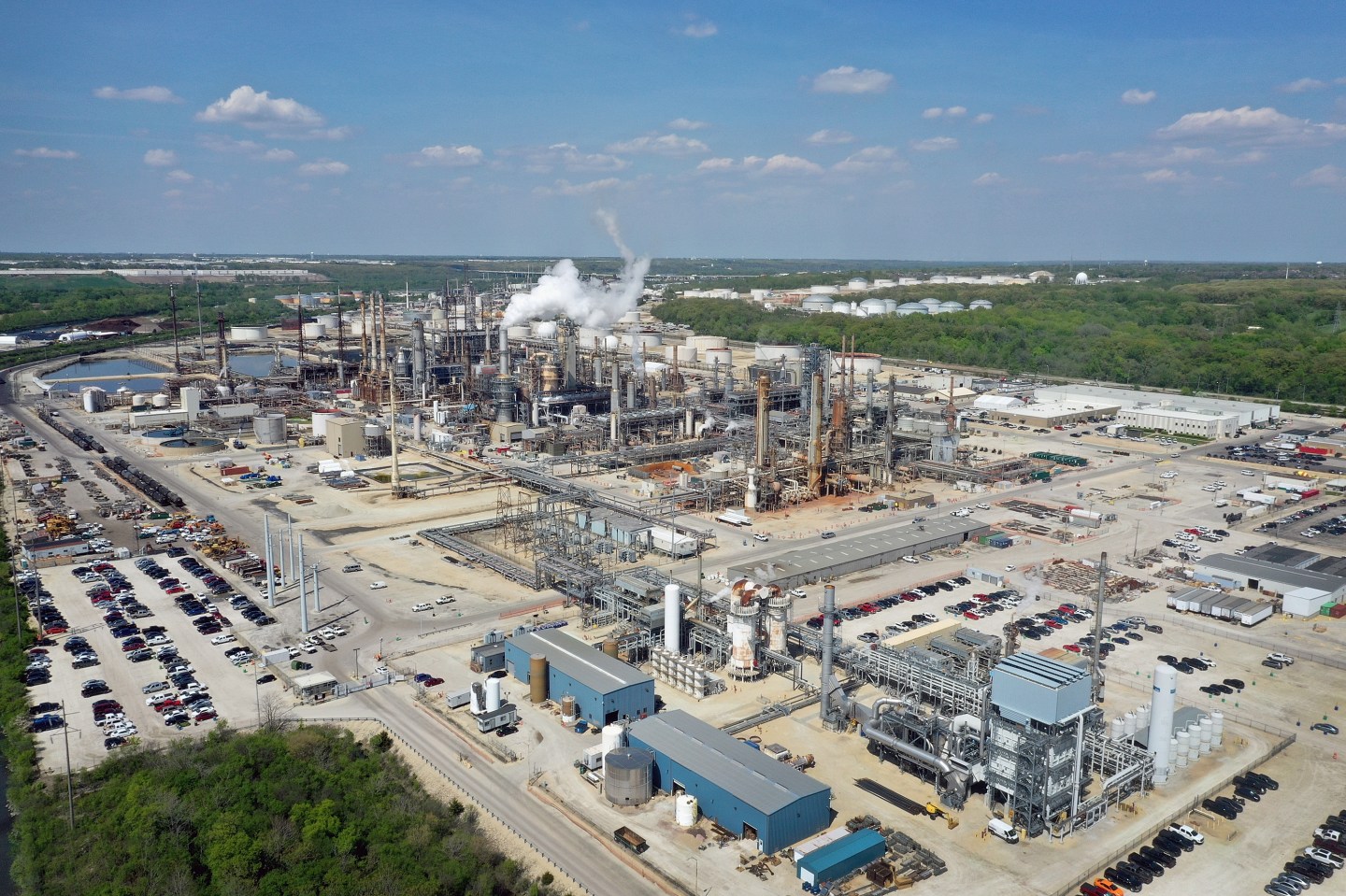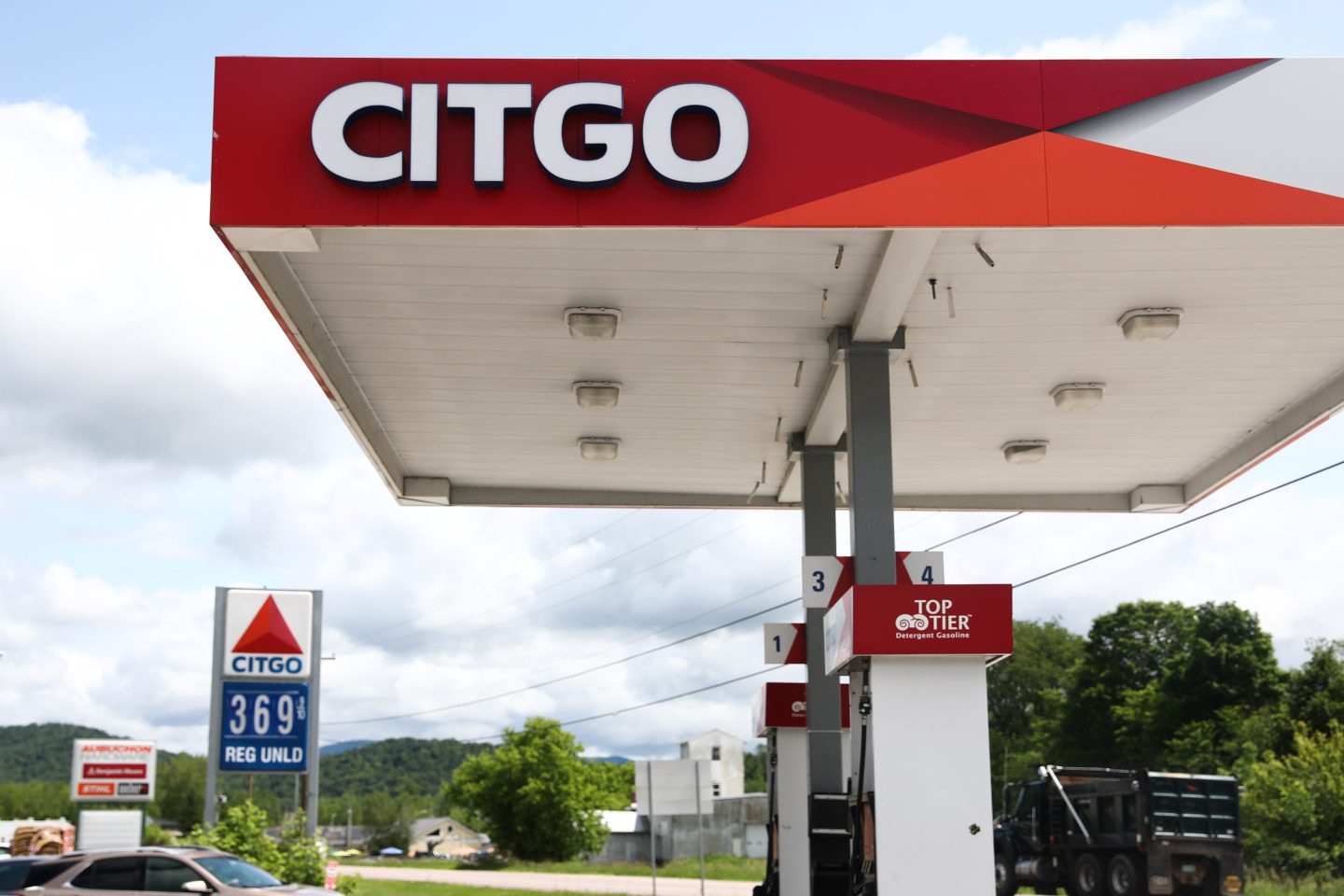Founded 115 years ago in Oklahoma, Citgo Petroleum is a quintessentially American oil and gas brand. Except, of course, that it’s been quietly and entirely owned by Venezuela since 1990.
Now, the decade-long legal saga over the fate of the Houston-based oil refiner could soon end through a drawn-out, legal auction to pay off creditors who lost oil assets, mining rights, and more when they were expropriated under Venezuela’s former socialist ruler, Hugo Chavez.
The bidders do not include the usual suspects, such as Big Oil giant Exxon Mobil or major refiner Phillips 66. Instead the finalists are activist investor group Elliott Investment Management, Canada-listed miner Gold Reserve, and an upstart special-purpose acquisition company named Blue Water. The latter is led by a biotech investor and a long-shot New York mayoral candidate pledging to take Citgo public.
The biggest companies likely stayed out of the bidding because of all the legal and geopolitical complications, energy analysts said, especially since Venezuela and state oil company PDVSA still lay claim to Citgo from what they regard as a sham legal process in an enemy nation’s courtroom in Delaware.
“Citgo could become a new, publicly traded refiner or it could be broken into pieces,” said Alan Gelder, vice president of refining, chemicals, and oil markets for the Wood Mackenzie energy research firm. “It’s very hard to say what form it will take and whether it’s going to be a poisoned chalice for the winner.”
After all, the saga involves asset seizures, the arrest and imprisonment of Citgo executives in Venezuela, prisoner exchanges, and multiple auction rounds in a bizarre, winding legal process. The refining assets could require expensive maintenance upgrades after several years of legal purgatory, Gelder said.
Creditors seeking to recoup nearly $20 billion in claims from Venezuela regard Citgo as their crown jewel. But none of the bids exceed $10 billion in the court-ordered legal process, so several of the creditors will be left unfulfilled.
At stake is Citgo’s 800,000-barrel-a-day refining network with refineries in Louisiana, Texas, and Illinois, as well as a series of pipelines and terminals, and branding and fuel marketing deals with 4,000 independently owned retail outlets throughout the East Coast, Midwest, and South.
“I struggle to think of another example with an ownership dispute and a forced sale process that’s dragged on for so long,” Gelder said. “The aspiration is to pay back $20 billion, but they’re not valued at that. It’s probably a process that’s pretty unsatisfactory for everybody.”

Sorting the players
The legal fight between Venezuela and its creditors brewed for years until 2018 when a small, defunct Canadian mining company, Crystallex, won a federal court ruling saying it could pursue Citgo’s assets to collect more than $1 billion it allegedly lost when Venezuela expropriated assets in 2011.
That ruling put Citgo squarely in the crosshairs. Oil giant ConocoPhillips alone holds more than half of the creditors’ claims—the Chavez regime seized its oil assets in 2007.
With the support of the U.S. government and a fresh wave of sanctions, Citgo formally cut operational ties with Venezuela in 2019, but the ownership question was never resolved.
U.S. Judge Leonard Stark is now overseeing a potentially final week of hearings on the bidding process to name a winner. The winning bid could be named in September or October, but the sale likely won’t be finalized until 2026 because of expected appeals.
The leading candidate is Elliott-backed Amber Energy which, despite not having the largest bid, was deemed the leading offer by a court-appointed officer because of its cash considerations and financial security. ConocoPhillips and Crystallex both support Amber.
The cash offer is for $5.9 billion, but Amber also would pay more than $2 billion to holders of defaulted Venezuelan bonds. Citgo equity had been used as collateral for the bonds.
In a separate court ruling Sept. 18, U.S. District Judge Katherine Polk Failla in Manhattan declared the validity of the aforementioned bonds.
Paul Singer-founded Elliott declined comment, but people familiar with Elliott’s thinking said—as with their other private energy assets—”They plan to operate these high-quality, important infrastructure assets rather than split or sell them.”
Gold Reserve previously offered $7.4 billion and recently upped the bid to $7.9 billion, as well as more than $2 billion for the bonds. Gold Reserve exists today to manage legal claims, and not to operate mines or refineries. As such, Gold Reserve created Dalinar Energy to lead Citgo. Dalinar also is partnered with Koch Inc., which owns the Flint Hills Resources refining company. Koch is a junior creditor in the case.
“We believe that Citgo is a fundamentally well-run company, so want to keep its workforce in place and operations unchanged,” Gold Reserve CEO Paul Rivett said in an email response. “We have no intention to flip the company and never have.”
Gold Reserve has repeatedly pushed back on the notion that Amber presented a more competitive offer. Rivett also bemoaned that Gold Reserve’s lawyer in Venezuela, José Ignacio Moreno Suárez, “has been held as a political prisoner for over two years and subject to intense torture and deprivation.” He remains captive.
A group of imprisoned U.S. Citgo executives were released in 2022 after five years in prison. The Houston-based executives—five U.S. citizens and one permanent resident dubbed the “Citgo Six”—were arrested in Venezuela for alleged embezzlement and accused of betraying the government. They were eventually released in a prisoner exchange.
Lastly, Blue Water Acquisition Corp. III—the first two iterations were health care tech firms—emerged just last week with a last-minute, $10 billion bid, including $3.2 billion for bondholders. Blue Water CEO Joseph Hernandez is endorsed by the Reform Party for New York mayor, but he’s not polling in the top four. Much of the proceeds would be paid through Blue Water stock.
Judge Stark denied Blue Water’s request to extend the timeline, but did give the company access to the Citgo data room used in the process, which doesn’t entirely shut the door on Hernandez’s firm.
“While we’re the underdog in terms of coming in later, I think we still have the better bid,” Hernandez told Fortune, touting his interest in making Citgo an American company again and contributing to U.S. energy security. “Citgo would be a great publicly company.”
Hernandez couldn’t resist taking a not-so-subtle jab at leading New York mayoral candidate Zohran Mamdani and his democratic socialist politics.
“This is about taking a socialist-owned company and taking it back to America,” Hernandez said.













